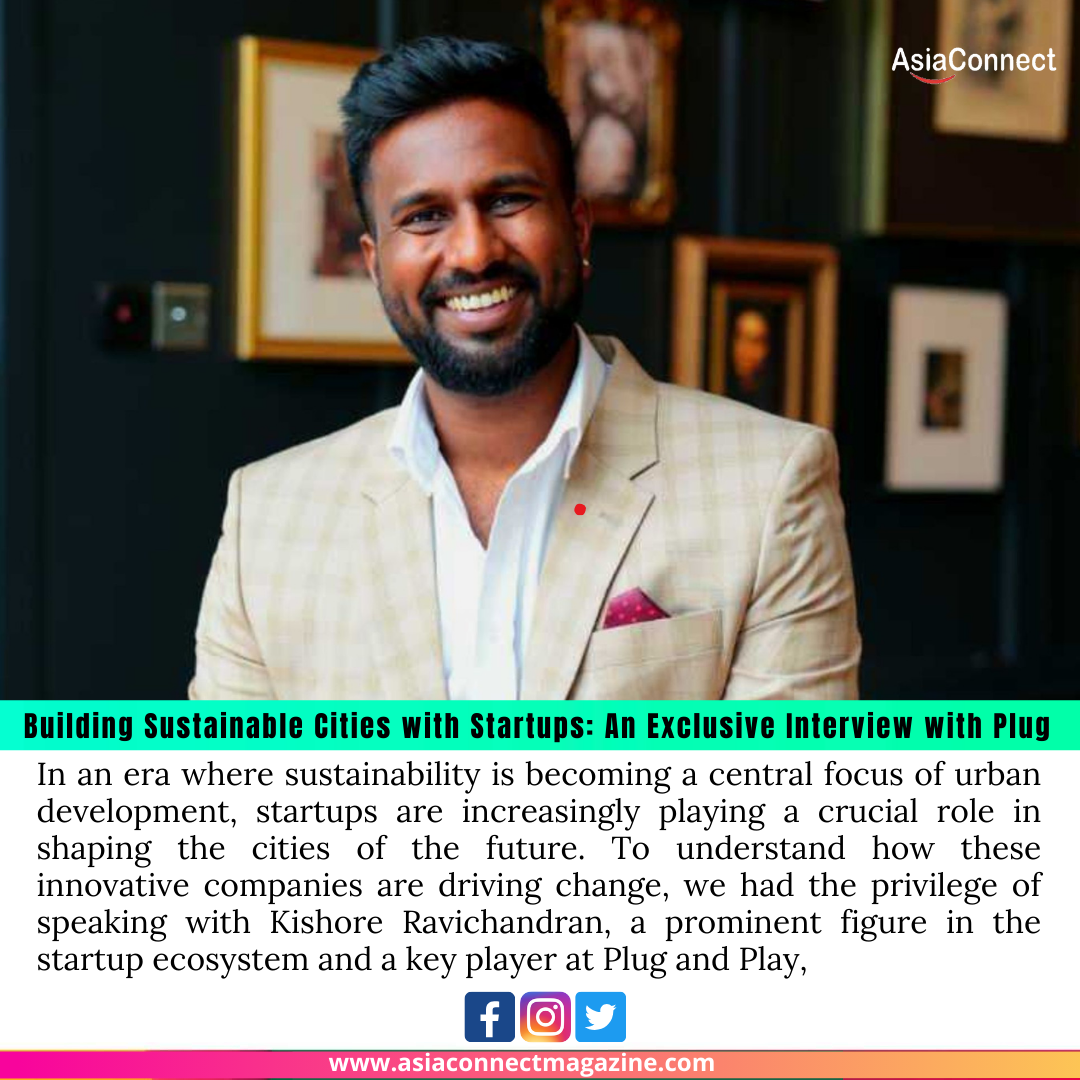In an era where sustainability is becoming a central focus of urban development, startups are increasingly playing a crucial role in shaping the cities of the future. To understand how these innovative companies are driving change, we had the privilege of speaking with Kishore Ravichandran, a prominent figure in the startup ecosystem and a key player at Plug and Play, a global innovation platform that connects startups with industry leaders. Ravichandran’s insights provide a valuable perspective on the intersection of entrepreneurship and sustainable urban development.
Q: Kishore, thank you for joining us. Can you start by telling us a bit about Plug and Play and its role in fostering startups focused on sustainability?
Kishore Ravichandran: Absolutely, and thank you for having me. Plug and Play is a global innovation platform that connects startups, corporations, and investors. We operate in various industries, including real estate and urban development. Our mission is to accelerate innovation by bridging the gap between startups and established companies. In the context of sustainability, we specifically focus on identifying and supporting startups that are working on solutions to make cities more sustainable. This involves everything from energy efficiency and waste management to smart transportation and green building technologies.
Q: How are startups contributing to the development of sustainable cities?
Kishore Ravichandran: Startups are at the forefront of innovation, and their contributions to sustainable cities are incredibly diverse. Many of these companies are tackling issues such as reducing carbon footprints, improving energy efficiency, and enhancing the quality of urban living. For example, some startups are developing advanced technologies for smart grids and renewable energy integration, while others are innovating in areas like urban agriculture, water conservation, and eco-friendly construction materials. The agility and creativity of startups enable them to address these challenges in novel ways, often with solutions that are both scalable and adaptable.
Q: Can you highlight a few startups that Plug and Play is working with that are making a significant impact in this space?
Kishore Ravichandran: Certainly. One example is a startup called “EcoCity Innovations,” which is developing smart waste management systems that use IoT technology to optimize waste collection and recycling processes. Another exciting company is “GreenTech Solutions,” which focuses on creating energy-efficient building systems that reduce the environmental impact of new construction. We also have “UrbanFarmers,” a startup working on vertical farming solutions that bring fresh, locally grown produce to urban areas, reducing the need for transportation and lowering overall carbon emissions.
Q: What challenges do startups face when working on sustainable urban solutions, and how does Plug and Play help them overcome these obstacles?
Kishore Ravichandran: One of the main challenges is scaling their solutions to meet the needs of larger cities. Startups often need support in areas like funding, market access, and regulatory navigation. Plug and Play addresses these challenges by providing startups with access to a network of corporate partners, investors, and industry experts. We offer mentorship, facilitate pilot projects, and connect them with potential customers and collaborators. Our goal is to help them scale their innovations and integrate them into existing urban infrastructure effectively.
Q: Looking ahead, what trends do you foresee in the intersection of startups and sustainable city development?
Kishore Ravichandran: I believe we will see a continued rise in the integration of AI and data analytics in urban sustainability efforts. Startups will increasingly leverage these technologies to provide smarter solutions for energy management, transportation, and environmental monitoring. Additionally, there will be a stronger emphasis on collaboration between startups and traditional urban planning entities to ensure that innovative solutions are implemented effectively and sustainably.
Q: Finally, what advice would you give to aspiring entrepreneurs who want to make a difference in sustainable city development?
Kishore Ravichandran: My advice would be to focus on understanding the real needs of cities and their inhabitants. Innovators should collaborate with urban planners, policymakers, and community stakeholders to develop solutions that are not only technologically advanced but also practical and impactful. Persistence and adaptability are key, as the path to making a significant impact in this field is often complex and requires navigating various challenges.
Kishore Ravichandran’s insights underscore the critical role that startups play in advancing sustainable urban development. By fostering innovation and collaboration, platforms like Plug and Play are helping to build the cities of tomorrow, where sustainability is not just a goal but a reality.





